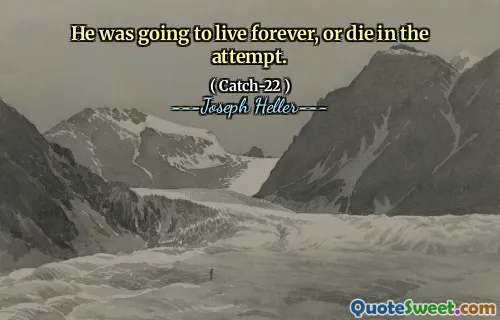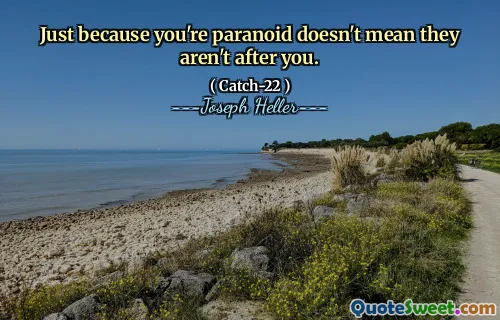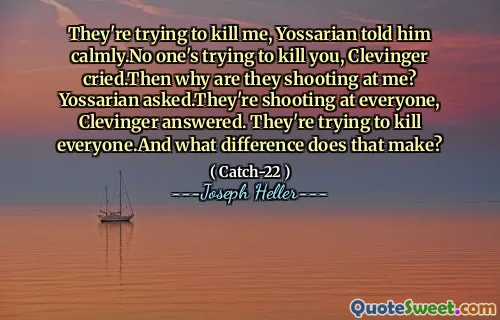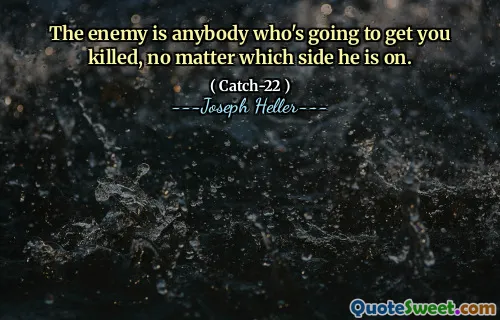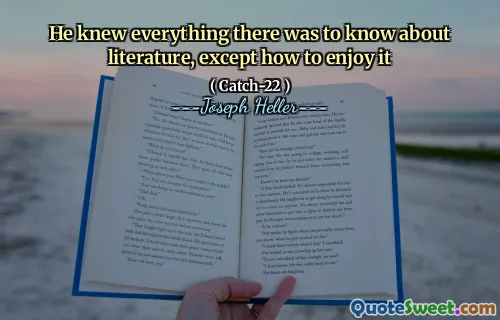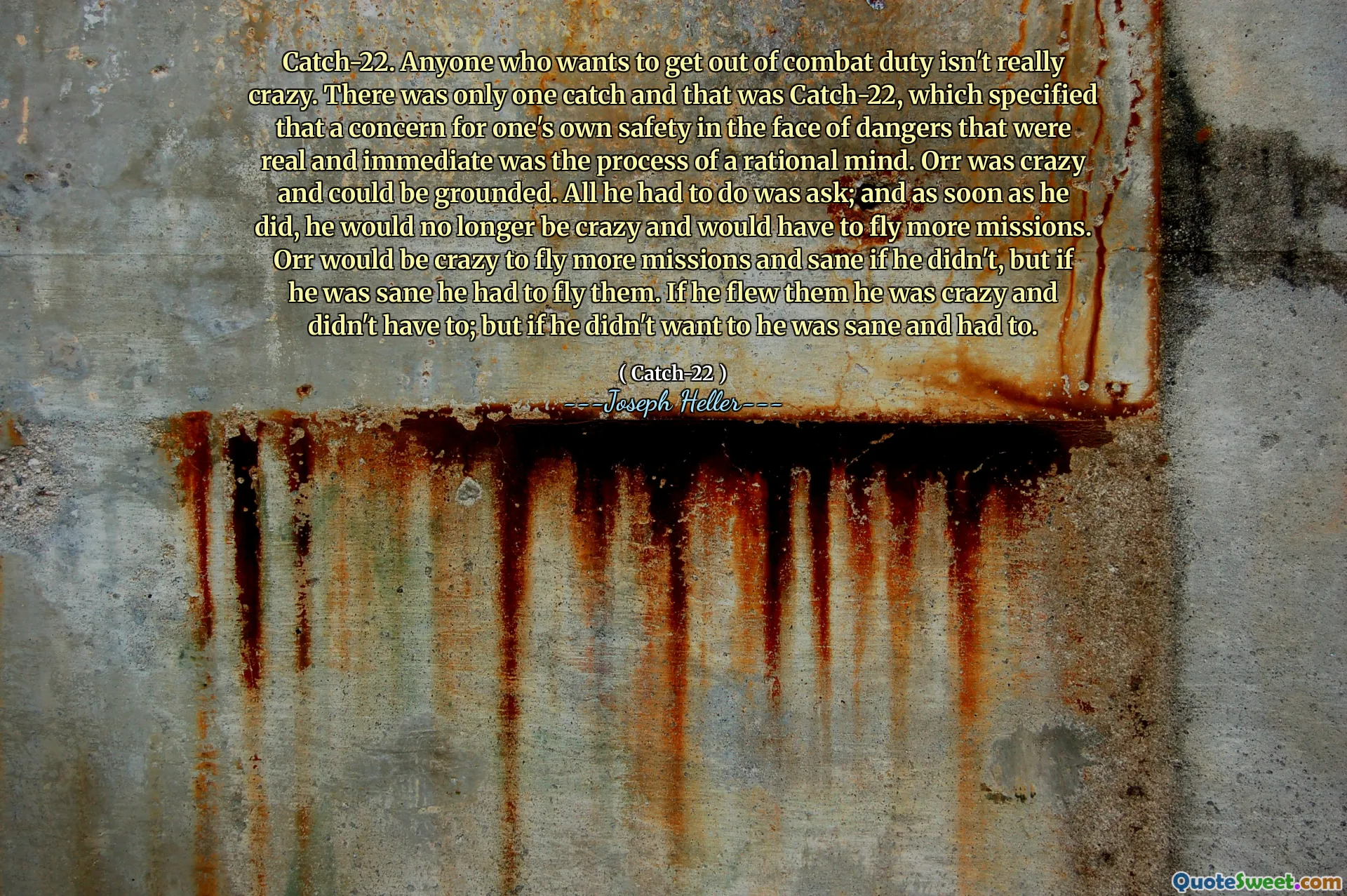
Catch-22. Anyone who wants to get out of combat duty isn't really crazy. There was only one catch and that was Catch-22, which specified that a concern for one's own safety in the face of dangers that were real and immediate was the process of a rational mind. Orr was crazy and could be grounded. All he had to do was ask; and as soon as he did, he would no longer be crazy and would have to fly more missions. Orr would be crazy to fly more missions and sane if he didn't, but if he was sane he had to fly them. If he flew them he was crazy and didn't have to; but if he didn't want to he was sane and had to.
In "Catch-22," Joseph Heller illustrates the concept of a paradox that traps individuals in a conflicting situation regarding their sanity and duty. The character Orr embodies this dilemma; the regulation essentially insists that a soldier must demonstrate a lack of concern for their own safety to be deemed insane and unfit for combat. However, the moment one recognizes the dangers and seeks relief, they are deemed sane and must continue to partake in the perilous missions.
This creates an absurd loop where the desire to avoid danger is equated with sanity, yet acknowledging that desire prevents one from escaping the dangers of flight missions. Heller's portrayal of this catch encapsulates the illogical and bureaucratic nature of war, reflecting on the broader complexities of human reasoning and the systemic challenges faced by those trapped in such untenable circumstances.
